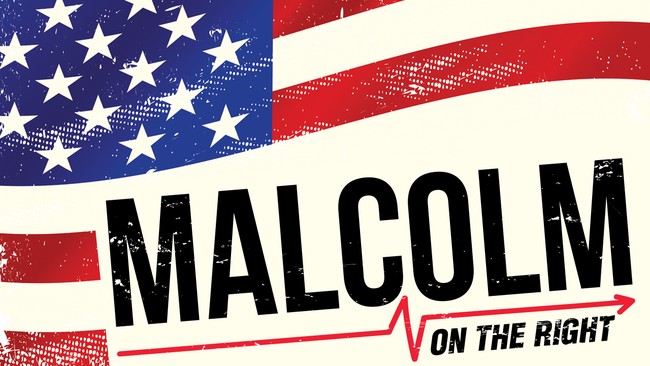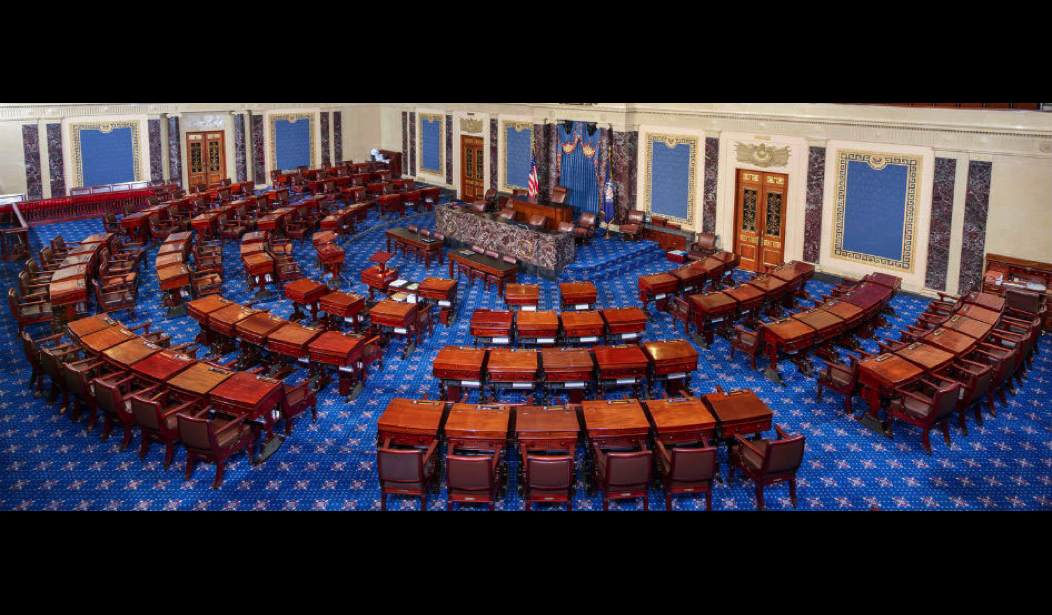Everyone’s political attention these days seems focused on which disastrous presidential candidate will acquire at least 270 electoral votes on Nov. 5 and surely doom America’s future and civilization.
The honest answer, of course, is nobody knows — not one pollster, not one pompous Sunday TV blabber, not one media pundit, not even your opinionated neighbor with four lawn signs.
Media, which has willingly abandoned its constitutional obligations as an independent public watchdog, is instead a leftist lapdog tragically fixated on polling numbers. Media was so much better when they were just working-class Joes, not graspers seeking acceptance to elite parties.
They tell us this is an historically close race. So, don’t dare change the channel, folks!
The reasons for predictably repetitive horse-race coverage are several: They can make political news seem new every day, even weeks before voting.
It’s cheap and easy. Write up the latest numbers, insert a sprinkle of background data, call a couple partisans for self-serving quotes about how good/awful it is, and sneak in some slanted verbs that imply liberal momentum.
For an occasional change-up, interview people on the street. Editors love man-in-the-street interviews because they’re also easy and cheap to assign.
However, they are the most useless form of "journalism" because, honestly, who cares what startled pedestrians say when a stranger suddenly asks about politics that they haven’t thought much about but have to come up with an answer now?
If you want your story to favor Republicans, interview grocery shoppers in Hastings, Nebraska. If you want it to favor Democrats, talk to college students in Madison, Wisconsin. I know this because, as assigned, I’ve done it.
Every political campaign intentionally sows fear porn to divide Americans into Us vs Them for voting. That used to happen only in election seasons. Now, it’s all the time and has proven corrosive to a civil society.
Flipping stats like pancakes is easier for reporters and, sadly, safer than demanding candidates actually think up new solutions and answer spontaneous questions. Media gulps the doom down because scary stuff is great for attracting readers and viewers.
Fauci used fear porn every day to control life during COVID, which showed media how profitable fear can be, at least online and on-screen. When’s the last time you saw coverage of a productive City Council meeting or thousands of airliners landing safely every day?
Best of all, come November — or even, say, next Tuesday — no one will remember any of this published popcorn, not one article, post, or video clip. It’ll all be forgotten and discarded like stadium debris at today’s NFL games. With no consequences either for the culprits.
So, this week, for my change-up, here’s a look at what will really determine what the next awful president can and cannot do:
Elections for the United States Senate.
No president can get anything lasting done without control of that upper chamber. No suitable judges, no cabinet secretaries, no treaties. And when a White House does have a majority, thanks to a wily Mitch McConnell (R-KY), for instance, big things happen. (See Supreme Court nominees in Donald Trump’s first term.)
Without Senate control, expect gridlock in a divided government, which, collectively, voters sometimes decide is desirable. Recently, they’ve chosen narrow margins in both houses.
Republicans should be in great position to take Senate control — emphasis on should.
That chamber is currently Democrat, 51-49, with Vice President Giggles on hand for tie-breakers.
But 34 Senate seats are on the ballots this year. Democrats must defend 23 of them; Republicans only 11. And fully 10 of those 11 are in states that have reliably gone GOP by wide numbers for a quarter-century.

Three of those 24 Democrat seats – Montana, Ohio, and West Virginia — are in states that went overwhelmingly for the Republican ticket in almost all of the last six presidential elections.
Joe Biden, for example, blew West Virginia in 2020 by 39 points, and that seat is open this time with Joe Manchin’s departure. Gov. Jim Justice, a former Democrat, would be expected to make that a GOP pickup.
Trump staged one of his trademark rallies recently in Montana, where presidential candidates rarely bother to go because of its puny three electoral votes. Shows how important a single-seat pickup can be.
Trump, who carried Big Sky Country by 20 points and 16 points in his first two campaigns, is supporting Tim Sheehy, the latest challenger to two-term Democrat Jon Tester.
Tester, like a Democrat predecessor Max Baucus, has succeeded with responsive constituent services while talking guns and hunting at home but voting reliably liberal in D.C. Media rarely points out this hypocrisy.
Sheehy, a businessman and former Navy SEAL, is the handpicked candidate of Montana’s other senator, Steve Daines, chair of the National Republican Senatorial Committee. Recent polls suggest Sheehy is pulling ahead of Tester.
In Ohio, businessman Bernie Moreno is in an expensive uphill battle against three-term incumbent Democrat Sherrod Brown. Outside GOP interests have added millions to Moreno’s own ad campaign spending.
Trump, who carried Ohio by eight points both times, and his VP partner, JD Vance, Ohio’s other senator, have campaigned for Moreno.
Historically, Senate election results tend to follow presidential outcomes in states; that's what scared the Scranton out of Democrats when unpopular, unhinged Joe Biden sought a second term. Only five of 100 current senators, mostly Democrats, come from states that went for the other party on presidential ballots. Brown and Tester are two of them.
The respected Center for Politics at the University of Virginia moved Montana this past week from Toss-Up to Likely Republican. The Cook Political Report runs down all the Senate contests.
But ominously for GOP hopes of a Senate majority, the Center still lists five other key races as Likely Democrat – Arizona, Nevada, Wisconsin, Michigan, and Pennsylvania.
As usual, this far out, numerous unknowns cloud the November outlook. While current polling indicates the presidential race is tight, Harris did not receive the usual positive bump after her convention.
As the renowned word-salad speaker, Harris has been avoiding talk of specific campaign policies, her radical leftist ones of the past, and any specific new ones, all with the tacit submission of media.
Also, she’s been consistently dodging spontaneous, on-the-record contacts with reporters and suffered virtually nonexistent push-back from the usually whining media.
This week’s nationally televised debate between Trump and Harris could play another disastrous role as it did for Joe Biden in June.
But expectations may be so low for the giggle-prone VP that even a mediocre Harris performance could appear stunning. She's been undergoing intense preparation for weeks with staff and Hollywood coaches.
The debate will be hosted at 9 p.m. Eastern on Tuesday by ABC News with moderators Linsey Davis and David Muir and simulcasts on FoxNews, CBS, NewsNation, NBC, and CNN.
Also unknown is the effect of so-called “shy voters,” those supporters of the former president who mislead pollsters of their intentions but end up producing better results for Trump than pre-election surveys indicate.
Until recently, popular Georgia Gov. Brian Kemp (R) has been on Trump’s spit list for not supporting his 2020 election challenge. They’re both talking unity now.
But Kemp has touched on another potentially important but unquantified influence to keep in mind:
Whether it’s the presidential race, people that are running for the United States Senate, Congress, local races, I think there’s been a lot of frustration out there amongst the American people [over] politicians trying to destroy the other side versus telling people why you should vote for us….
We’ve got to tell people what we’re for. Quit looking in the rear-view mirror. I believe the voters that are going to decide this presidential election are tired of hearing about the 2020 election and want to focus on what candidates are going to do for them in the months and years ahead.













